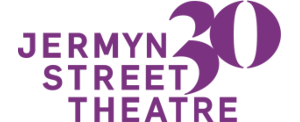We were lucky enough to talk to Rita Kalnejais, writer of This Beautiful Future, about why she began to write, where the idea for the play came from and why it is so important that This Beautiful Future is performed right now in this current cultural and political climate.
This Beautiful Future is a hopeful play about finding love amidst the ruins of war. Could you tell us a little about why you wrote this play?
Trump had just been elected and we’d faced the Brexit referendum. I was struggling with it all and had become so obsessed with an online dog rescue shelter in Romania that I couldn’t talk about anything else. A film project I’d poured my soul into had fallen over. I was honestly feeling so sad about the world inside my body and out. I remember wanting to write something that was just GORGEOUS- a love story that had a happy ending. I wanted to give a present to audiences. That’s what me and Jay Miller – who was director and beautiful collaborator on every level of this – talked about. Hence the fact that in the first production there were live chicks.
P.S. I adopted a dog from that site just before starting rehearsals of TBF. Ottie.
We’re transported to Chartres in 1944 – the midst of the Second World War – a setting that pervades a lot of media for many people around the world. How did you absorb yourself in the setting before writing?
I’d seen an exhibition in Paris about hair. There was footage of women having their heads shaved and being publicly shamed. Some of the women were crying and others were stoic or angry. There was one young woman acting as though she was just getting a bad haircut and laughing with embarrassment about it. She’s not carrying any guilt- she had probably just fallen in love with a guy posted in town- and it makes the jeering crowds around her look so violent. That’s Elodie and that was the start of the idea.
And then to write, I watched every documentary that I could find. I found people talking about their time in Hitler Youth especially useful. I read some books about French involvement in WW2 and I read Mein Kampf. Poems were brilliant- there’s a beautiful one called Barbara by Jacques Prévert. But, I also talked with teenagers to try to catch the rhythm, rage, clear-sightedness, innocence, and worldliness of the characters. Jay Miller and Ashleigh Wheeler were so phenomenal with development. That was their idea and something I use with everything I write now. And the cast and creative team all fed in. A beautiful, lucky process.
What did your journey into the arts look like?
I was an actor- mostly stage- for many years in Australia and worked with some fantastic directors on beautiful classical and new texts and learned a lot about being inside a character. I sort of always knew that I wanted to write but I really struggled to sit down and focus. Then I became quite shy on stage and couldn’t bear to act anymore. It’s like I’d stopped inhabiting characters in the same way and had started sitting outside myself. I think I was cornering myself so I had to start writing because I had to pay rent and live and I was just never re-rostered at cafe jobs. I wrote a play that was chaotic but had a glorious production directed by Simon Stone with great actors and from there I got some commissions. And I went back to doing a bit of acting then but I knew it would never be vocational for me again. Babyteeth at Belvoir Theatre was my first mainstage play in Australia and then it was optioned for film after I’d moved to London. There were many years of writing but feeling a bit like I was making up the fact I was a writer. I was one of the Soho 6 at Soho Theatre and had a play on there- First Love is the Revolution- and then TBF which I think has been my favourite experience as a writer. A few years ago I started getting more screen work and now that’s mostly what I do but I love them all.
Your previous work has included screenplays such as the incredible Babyteeth. How much do your different projects, spanning genres and forms, feed into one another and how is writing for the stage different to the screen?
Babyteeth was the film project that had fallen over when I wrote This Beautiful Future! Films take forever and you really can’t give up on them. I’d say theatre is heavier psychic work. I love it so much. You’re creating and discovering the world at the same time as the characters at first and then it’s so collaborative. With film – for me so far anyway- you have a world that exists that the characters inhabit. In theatre, I’ve been told the only rule is don’t be boring. But I feel like you’re aspiring for an exquisite, pure connection between characters and production and audience. Every medium needs that but film and TV are more reliant on story. I feel that audiences work harder emotionally in the theatre, bringing their own memories, allowing imaginations to run with it. I have some film and TV deadlines I’ll be working on later this evening so I’m pining after theatre as I write this. I love all the forms. And re. Genre…I’m not great with that. I just want the characters’ hearts to beat and for them to have senses of humour and take themselves too seriously about some things and to fall in love. Form isn’t my strength. But I’m working on it. I believe it’s important. And everything feeds in and everything gets used.
This Beautiful Future was first performed at the Yard Theatre in 2017 – do you think the last few years have affected the context of the play and how it is received?
I think now is a GREAT time for this play. Corona and all the misinformation and fear, sadness and isolation have been intense. Bring on the love stories! Also, teenagers have seen parents and political leaders floundering and make poor choices. I think we all have this feeling of: where are the grownups? And this feeling of what’s next? It’s all unknown. I’m very hopeful.
News arts, culture, london, playwright, Rita Kalnejais, screenwriting, theatre, This Beautiful Future, writing
« Success at #OffFest!Relatively Speaking: A Performance History »
Recent Posts
- The History of Farm Hall
- 1922: The Waste Land by T.S Eliot
- New Leadership Team announced
- Tom Littler to leave Jermyn Street Theatre as he joins Orange Tree Theatre as Artistic Director
- Coming Soon… The Encounters Season
News Archive
- March 2023
- July 2022
- June 2022
- May 2022
- September 2021
- August 2021
- July 2021
- May 2021
- March 2021
- February 2021
- October 2020
- August 2020
- July 2020
- April 2020














